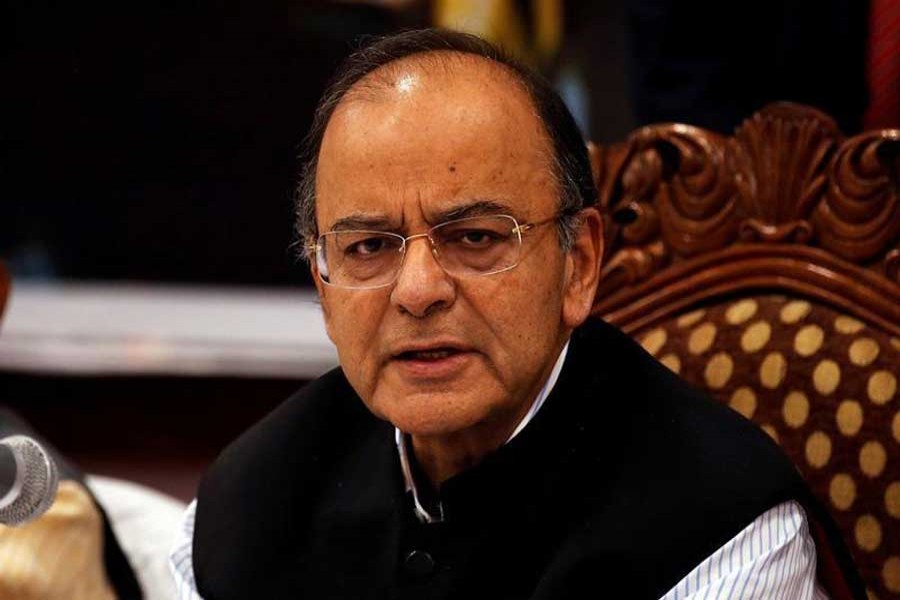Finance Minister Arun Jaitley said on Saturday that the government is confident of meeting its fiscal deficit target of 3.3 per cent of gross domestic product in the current fiscal year, a day after outlining a number of measures to bolster the falling rupee.
In a message clearly aimed at allaying market concerns that a confluence of factors could derail the Indian economy, Arun Jaitley said on Saturday the government is sure of meeting the fiscal deficit target given robust tax collections.
“We will have a growth rate higher than what we’d projected earlier this year in the budget,” Jaitley said, after he and his team briefed Prime Minister Narendra Modi on the economy.
Jaitley’s message comes a day after he outlined a slew of measures aimed at stemming a decline in the rupee - the worst-performing Asian currency this year.
Despite strong GDP growth, the rupee has weakened about 11 per cent this year amid higher oil prices and an emerging markets sell-off. This has widened India’s current account deficit and pushed its balance of payments into the red in April-June for the first time in six quarters.
“The government is confident and will strictly maintain the 3.3 percent fiscal deficit target,” said Jaitley, adding Modi expressed satisfaction on the macro-economic data that has so far emerged for this year, Reuters reported.
Jaitley said the fiscal year that ends in March 2019 will be completed without any spending cuts, adding that inflation remained broadly under control.
India on Friday said it will take steps to cut down “non-necessary” imports, ease overseas borrowing norms for the manufacturing sector and relax rules around banks raising masala bonds, or rupee-denominated overseas bonds.


